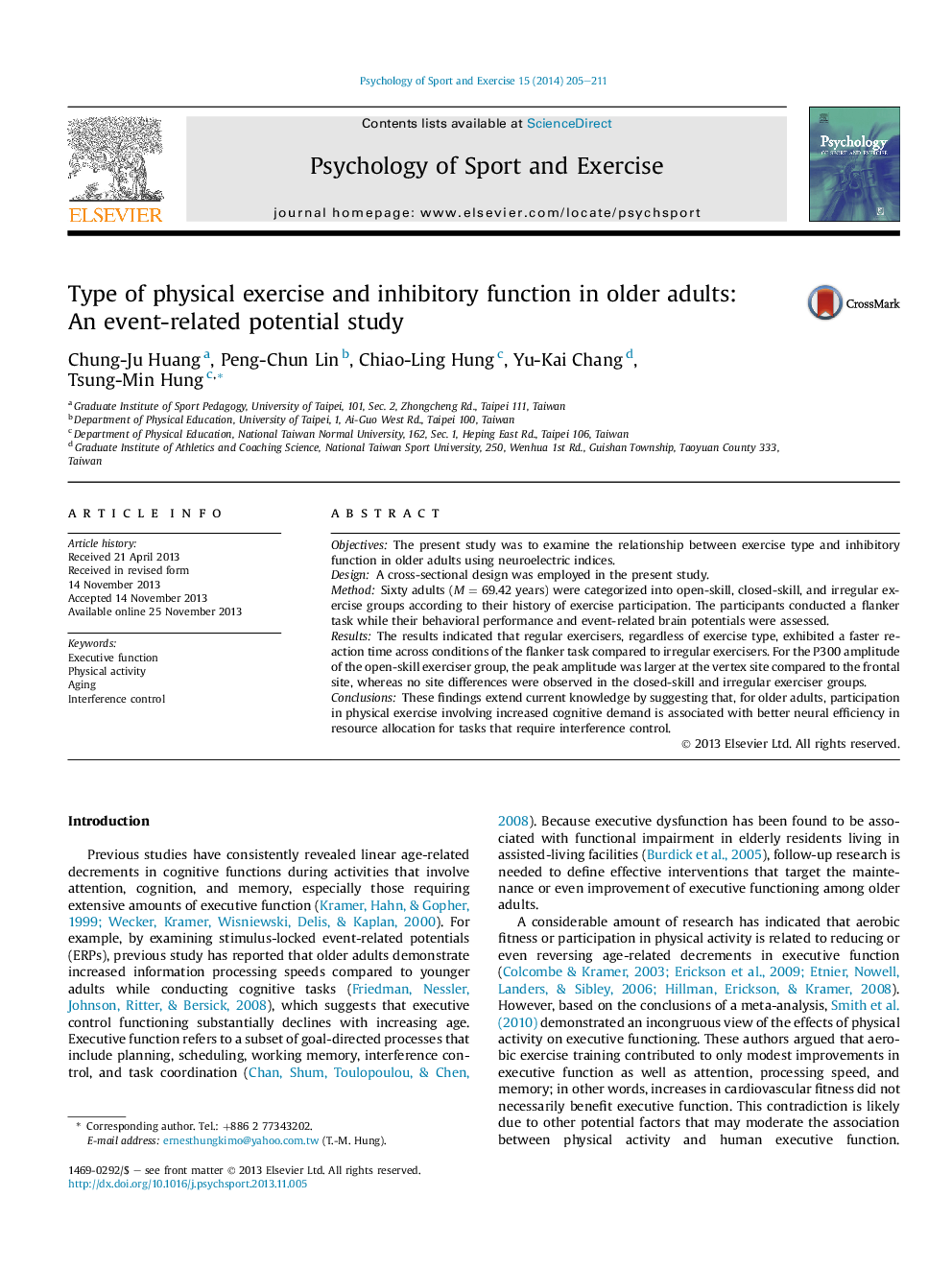| Article ID | Journal | Published Year | Pages | File Type |
|---|---|---|---|---|
| 894459 | Psychology of Sport and Exercise | 2014 | 7 Pages |
•We examined if exercise type was related to inhibitory function in older adults.•Regular exercisers exhibited a faster response speed than irregular exercisers.•Open-skill exercisers revealed a better preservation of inhibition control function.•Open-skill exercises are associated with greater efficiency of neural circuits.
ObjectivesThe present study was to examine the relationship between exercise type and inhibitory function in older adults using neuroelectric indices.DesignA cross-sectional design was employed in the present study.MethodSixty adults (M = 69.42 years) were categorized into open-skill, closed-skill, and irregular exercise groups according to their history of exercise participation. The participants conducted a flanker task while their behavioral performance and event-related brain potentials were assessed.ResultsThe results indicated that regular exercisers, regardless of exercise type, exhibited a faster reaction time across conditions of the flanker task compared to irregular exercisers. For the P300 amplitude of the open-skill exerciser group, the peak amplitude was larger at the vertex site compared to the frontal site, whereas no site differences were observed in the closed-skill and irregular exerciser groups.ConclusionsThese findings extend current knowledge by suggesting that, for older adults, participation in physical exercise involving increased cognitive demand is associated with better neural efficiency in resource allocation for tasks that require interference control.
